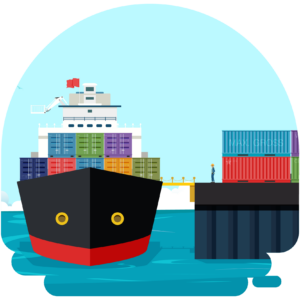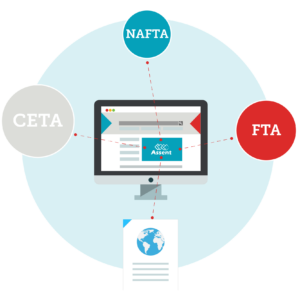Still Exploring?
Looks like you’ve been exploring our platform.
Want to see everything in one place?
 Trade classification and origin is a series of requirements that must be met to clear customs and transport goods around the world. In order to bring goods into a foreign country, the owner of the goods must disclose relevant customs data and pay any required tariffs or duties. Examples of required customs clearance information include:
Trade classification and origin is a series of requirements that must be met to clear customs and transport goods around the world. In order to bring goods into a foreign country, the owner of the goods must disclose relevant customs data and pay any required tariffs or duties. Examples of required customs clearance information include:

All companies that ship internationally are impacted by trade classification and origin rules, and must gather the appropriate trade compliance information and complete the proper filings to successfully manage customs. The organization is responsible for gathering the data, ensuring it is consistent and accurate, and making product certifications available.
Learn how transparency in trade classification and origin can drive business growth, and how Assent can help.
Download eBook
Companies can ensure compliance with two key pieces of supplier data: a Certificate of Origin, which is required to identify the origin of goods, calculate tariff fees and meet labeling requirements; and a Harmonized System (HS) or Harmonized Tariff Schedule (HTS) code to classify data and ensure its consistency between parties.
A variety of penalties could be imposed for failure to meet trade classification and origin requirements, notably:

Assent’s Trade Classification and Origin Module helps companies manage their supply chain data , including: